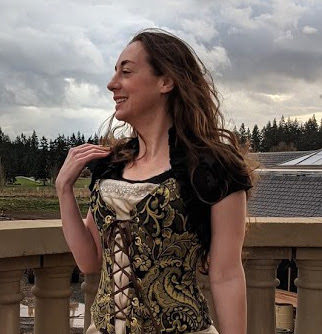

Deirdra: When did you first know you wanted to be an author?
John: I wanted to write from about the age of 11 but my ability to hand write stories of any length was zero. It took modern technology to allow my writing to blossom and I didn't begin writing novels until 2006.
Deirdra: What is your writing and educational background?
John: I decided I wanted to be a poet at the age of eleven, but I also wanted to be an engineer and the two didn't mix very well. I passed the eleven plus and got my first choice, which was a technical school in Sheffield. I took A levels in Mathematics, Further Mathematics and Physics and went on to take a degree in Pure Mathematics in the UK's only University of Technology. My poetic and writing ambitions were well hidden from my friends for most of this period.
However, in one of those life changing coincidences, the poet I rated as the best in modern Britain became a fellow of poetry at my university as it tried to pretend it could do arts as well as science. (It couldn't.) That poet was Roger McGough, and he and I became friends for years. He was a great supporter of my writing and I learnt an enormous amount from him.
After university I found that writing while working on designing defence systems didn't go together. I got married and that and bringing up children left little time for creativity outside of work. But as the kids got older and the PC became usable as a writing tool I started going over old work and eventually writing new things. The Internet was a great encourager as I could find like minded people. I joined Myspace and wrote epic poems for friends before I discovered I could write (bad) novels.
I joined Authonomy and learned to write by working out what was wrong with other people's stories and then applying it to my own work.
Deirdra: What makes you passionate about writing?
John: Writing is the most fun you can have on your own. It allows you to be creative and share that creativity with other people. I am a storyteller who has learnt how to tell stories. I think I am getting better at it.
Deirdra: Were you ever discouraged along the way? If so, how did you deal with it?
Deirdra: What is your writing schedule like?
John:At the moment I'm editing books for publication and to be honest I've only written one book this year. I wrote it a chapter a day until it was finished which is my usual method. I don't edit until the book is finished because it wrecks the creative flow. Editing is much the same, one chapter a day. I do like to write at least one flash fiction piece a month, regardless of whether I'm writing or editing.
Deirdra: Where do your ideas come from? How do you know the idea is good enough to write a book about it?
As for being good. With novels this is about entertaining the reader. Last chapter too slow? Add some action. Too obvious? Add surprises. Too fast? Slow it down. Too serious? Add some humour. This is the great thing about not plotting ahead, anything is possible. It is a point of honour that I never go back and change a plot point to make it work. The challenge of making everything fit is part of the fun.
Deirdra: What do you hope readers will get from your books?
John: As much enjoyment as I got writing them.
Deirdra: Do you ever experience a snag in a story, a form of writer's block? If so, how do you deal with it?
Deirdra: Do you need absolute quiet to write? Do you listen to music when you are writing?
Deirdra: What kinds of inspiration do you use during your story creation periods?
Deirdra: What’s your secret to making the character’s in your books come to life?
John: They have to have a consistent voice. I like fiesty females and competent males.
Deirdra: What authors do you admire, and why?
John: Diane Wynne Jones and JK Rowling. Their works are so good I read in awe. It is a combination of amazing imaginations and the ability to write of impossible things as though they are real
Deirdra: What is your favorite snack to have while you are writing?
John: I like to drink lemonade.
Deirdra: What words of advice do you have for other writers who desire to have their manuscripts become books in print?
John: To believe in themselves and never to believe that anything they've written is perfect. To own the ideas completely but to be willing to change anything else to sell the book.
Deirdra: What are you working on now?
John: Just editing at the moment. I think I'm going to write a sequel to Wizards next.
Deirdra: Where can our readers go to find your books and order them?








0 comments:
Post a Comment